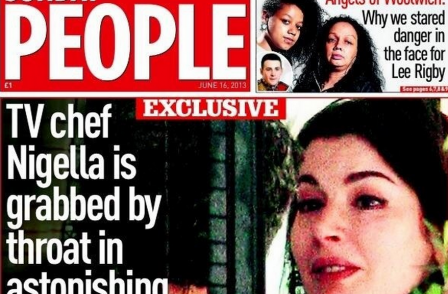
The Press Complaints Commission has upheld a harassment complaint against a photographer and reporter working for an agency commissioned by the Sunday People.
Complainant Michael Varey said that on 22 November 2013 he saw two men in a parked car near his home for several hours, "seemingly watching the residence and at one stage, looking into its windows".
According to the PCC, Varey approached one of the men, the driver, who said he was a reporter pursuing a story about his son. Varey then "swore at the two men" and asked them to leave, the PCC said.
The passenger in the car started filming the man on his mobile. Varey said he attempted to brush away the phone, prompting the man with the mobile to accuse him of assault. Varey said that the driver initially refused to identify himself and then gave his name. The passenger refused to give his name or stop filming, the PCC said.
The complainant himself then attempted to photograph the two men in the car, prompting them to cover their faces. After a "stand-off", police attended the scene.
The Sunday People said it asked a news agency to attend the complainant's house to follow up a potential story and, without its knowledge, the agency sub-contracted the job to a freelance photographer – the driver of the car.
According to the PCC: "The photographer then provided an account of the events that sharply contrasted with the complainant's. The newspaper was initially informed by the freelance photographer that there was no video of the incident; after the complainant produced the police log, he admitted a film had been taken, but said it had been deleted."
The newspaper denied that harassment had taken place, but the PCC upheld the man's complaint saying:
Clause 4 [of the Editors' Code] (Harassment) states that 'journalists … must not persist in … pursuing or photographing individuals once asked to desist… If requested they must identify themselves and whom they represent', and further that 'editors must ensure these principles are observed by those working for them'. While the newspaper's condemnation of the men's behaviour was welcome, the principle of editorial responsibility applied here, particularly as the newspaper appeared to accept that the agency's decision to subcontract the work did not contravene any specific instruction it had received. The newspaper was fully accountable for the actions of the men.
Although the commission considers complaints framed under clause four in their full context, a hostile reaction from a member of the public does not negate the requirement for a journalist to behave in compliance with the code. Despite the conflicting versions of events, it was evident from all accounts – and corroborated by the photographs – that the photographers had continued to film and approach the complainant after he had made a clear, albeit crude, request for them to leave. Their decision to persist in their activities after the complainant had made plain his position breached clause four.
The commission was also troubled by the complainant's claim that the photographer had initially refused to identify himself and the publication for which he was acting, and that his companion had consistently declined to do so. While it was not possible to establish the position with certainty, the photographs also suggested that the photographer had tried to conceal his identity at some stage, and confirmed that the passenger had attempted to do so, by concealing his face. This was contrary to the spirit of clause four and the commission took this opportunity to emphasise that, with the exception of clearly defined instances in which a decision has been undertaken to engage in subterfuge on public interest grounds, journalism should be conducted openly and with transparency about who is making a journalistic inquiry and on whose behalf."
The privacy aspect of the complaint was rejected by the PCC. It said that the man was not photographed inside his house and it noted that the filming happened on a public road.
As punishment the PCC will now have to publish the PCC adjudication.
Email pged@pressgazette.co.uk to point out mistakes, provide story tips or send in a letter for publication on our "Letters Page" blog
